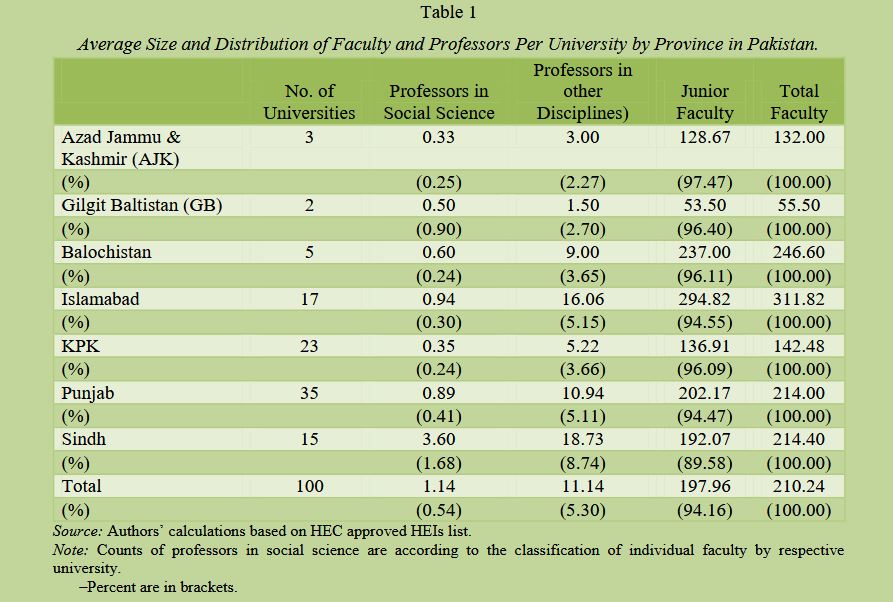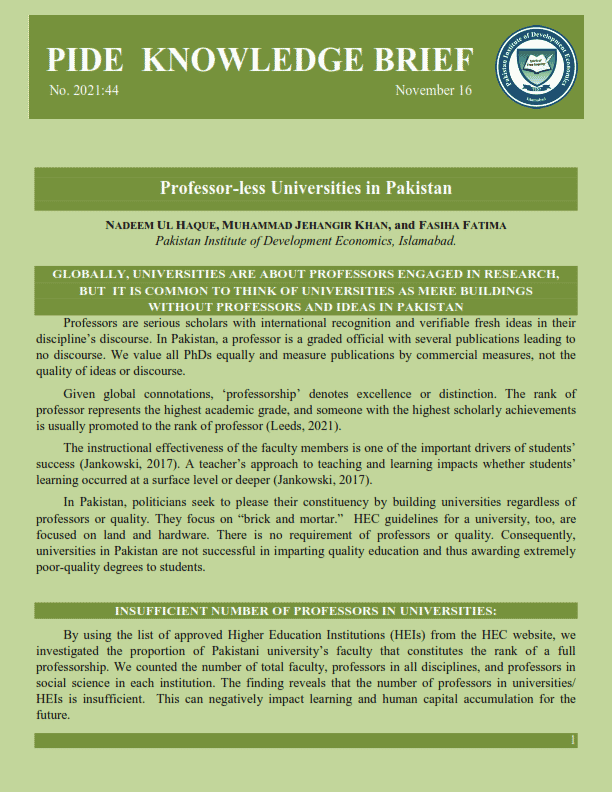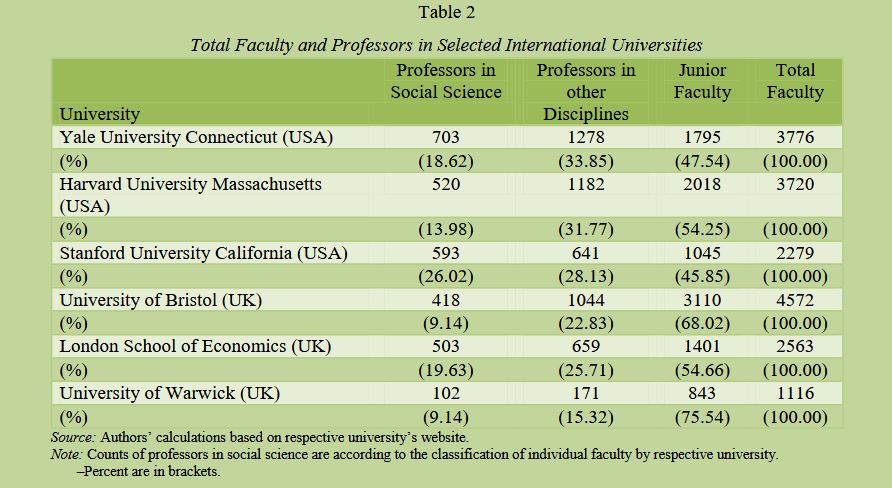Professor-less Universities in Pakistan
Professor-less Universities in Pakistan
GLOBALLY, UNIVERSITIES ARE ABOUT PROFESSORS ENGAGED IN RESEARCH, BUT IT IS COMMON TO THINK OF UNIVERSITIES AS MERE BUILDINGS WITHOUT PROFESSORS AND IDEAS IN PAKISTAN
Professors are serious scholars with international recognition and verifiable fresh ideas in their discipline’s discourse. In Pakistan, a professor is a graded official with several publications leading to no discourse. We value all PhDs equally and measure publications by commercial measures, not the quality of ideas or discourse.
Given global connotations, ‘professorship’ denotes excellence or distinction. The rank of professor represents the highest academic grade, and someone with the highest scholarly achievements is usually promoted to the rank of professor (Leeds, 2021).
The instructional effectiveness of the faculty members is one of the important drivers of students’ success (Jankowski, 2017). A teacher’s approach to teaching and learning impacts whether students’ learning occurred at a surface level or deeper (Jankowski, 2017).
In Pakistan, politicians seek to please their constituency by building universities regardless of professors or quality. They focus on “brick and mortar.” HEC guidelines for a university, too, are focused on land and hardware. There is no requirement of professors or quality. Consequently, universities in Pakistan are not successful in imparting quality education and thus awarding extremely poor-quality degrees to students.
INSUFFICIENT NUMBER OF PROFESSORS IN UNIVERSITIES:
By using the list of approved Higher Education Institutions (HEIs) from the HEC website, we investigated the proportion of Pakistani university’s faculty that constitutes the rank of a full professorship. We counted the number of total faculty, professors in all disciplines, and professors in social science in each institution. The finding reveals that the number of professors in universities/ HEIs is insufficient. This can negatively impact learning and human capital accumulation for the future.
Table 1 reports the average size and proportion of professors of social sciences and other disciplines and junior faculty per university in each province of the country. The table shows that there is a shortage of professors in Pakistan’s universities.
The number of professors in social sciences per university in each province ranges from 0.33 in AJK to 3.6 in Sindh. Professors in other disciplines ranging from 1.50 in GB to 18.37 in Sindh. Overall, professors in social sciences and other disciplines are 0.54 % and 5.30 % of the total faculty size.
LEARNING FROM THE WORLD
- Compared with universities in the USA and the UK, Pakistan’s universities lag in the number of professors (Table 2). For instance, about 18.62 % of professors in social sciences and 33.85 % of professors in other disciplines in the University of Yale USA. Approximately 45.75 % and 54.15 % of professors in all disciplines in Harvard and Stanford, respectively. There are about 32 % and 45.34 % of professors (all disciplines) at the University of Bristol and London School of Economics, UK, respectively.
CONCLUSIONS
- (1) There is an urgent need to shift policy focus from “brick and mortar” to building professors. Hence, PSDP allocations to the ‘brick and mortar” of universities must cease, and more money should be allocated to financing
- (2) Given the high failure rates and dropouts, human capital flight, and emitted peer review, HEC scholarships are a very inefficient way of nurturing professors with a high failure rate. In addition, since publications and PhD quality standards are loosely defined, quality assurance is limited, and knowledge capital remains of uncertain level, vitiating peer review.
- (3) It is important to jumpstart our 231 universities. Perhaps a better approach than the one we are using to develop an extensive professor hiring programme. This should mean hiring foreign professors at market value to spend time in Pakistani universities. Bear in mind that the HEC’s foreign faculty program was gamed with poor results. The process on how to do this credibly would need to be worked out. It will need to be carefully monitored (Haque, et al. 2020).
- (4) If we intend to initiate a professor development program, it should be carefully spread through leading universities to develop professional associations that should form the foundation of our peer review and academic discourse.
REFERENCES
Haque, et al. (2020). The university research system in Pakistan. A Knowledge Platform Project in Collaboration with the British Council in Pakistan.
Jankowski, N. A. (2017). Unpacking relationships: Instruction and student outcomes. Washington, DC: American Council on Education.
Leeds (2021). Professors and professorship: origins and history. https://professors.leeds.ac.uk/what-is-a-professor/.





